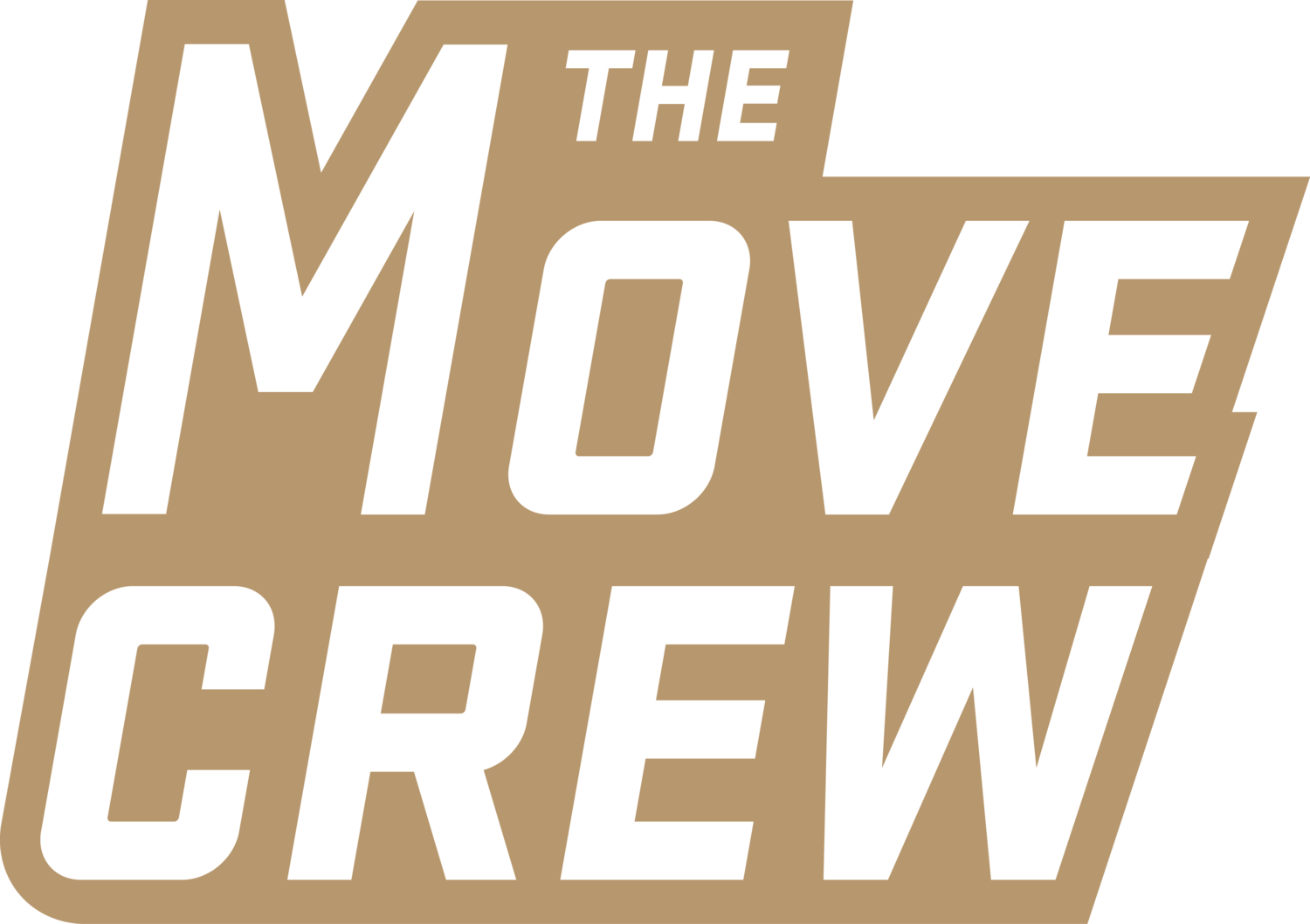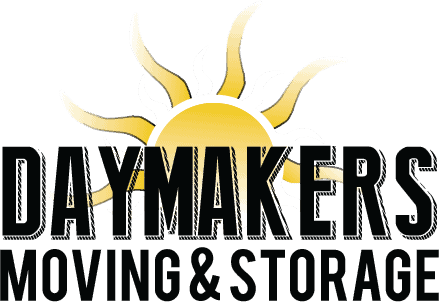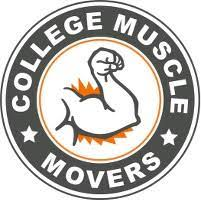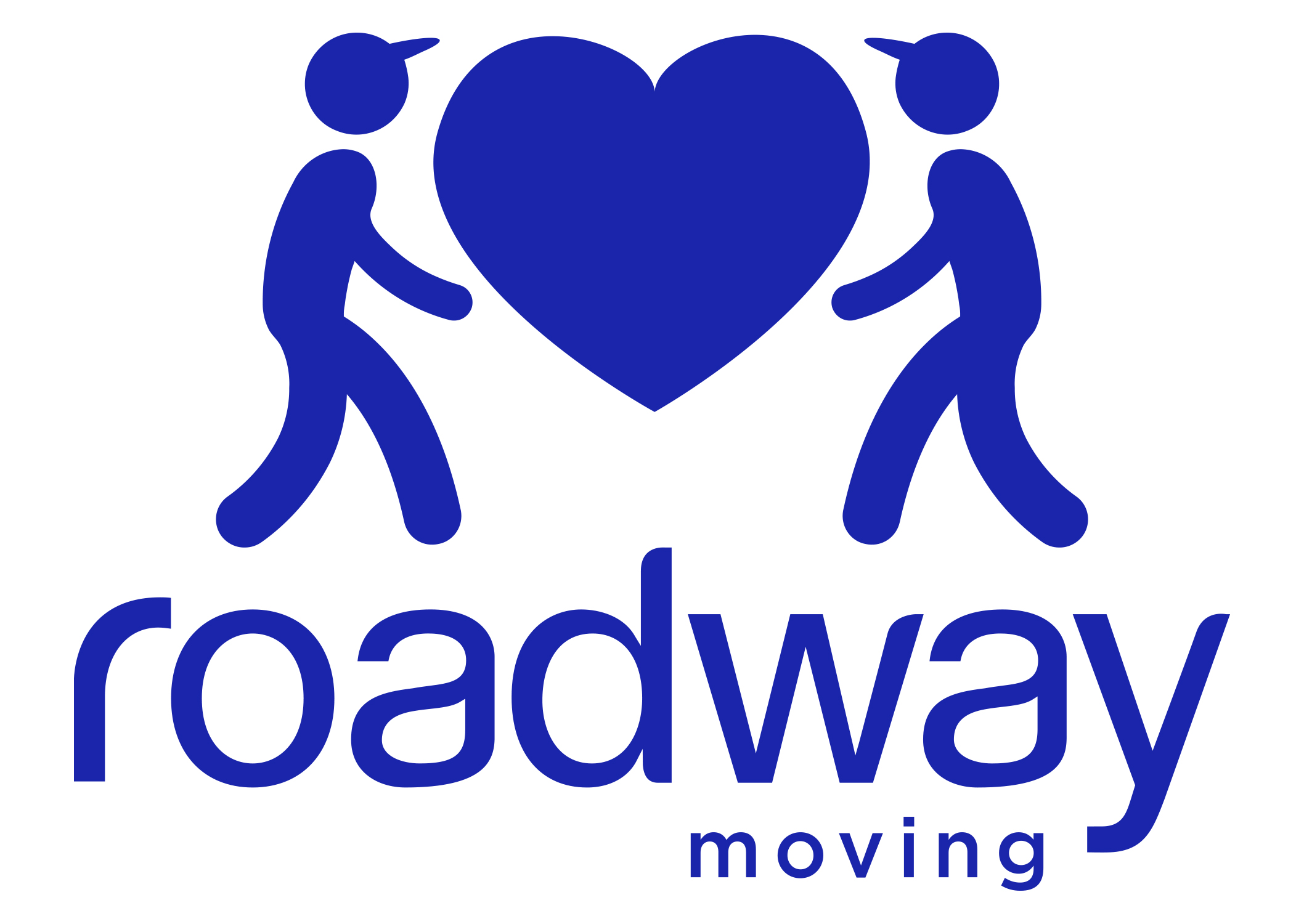Top local movers for St. Paul to Charleston moves
Searching for a dependable local mover in St. Paul that also provides long-distance services to Charleston can feel overwhelming. That’s where we come in — we’ve analyzed 35 local movers in St. Paul who specialize in long-distance relocations, factoring in cost, services, and customer feedback.
These are the best local moving companies for getting from St. Paul to Charleston.
- Matt’s Moving Company : 4.66 out of 5 stars
- Piepho Moving & Storage, Inc.: 4.62 out of 5 stars
- Metcalf Moving & Storage: 4.5 out of 5 stars
- The Move Crew: 4.5 out of 5 stars
- Daymakers Moving & Storage: 4.5 out of 5 stars
Company Info
State license #: 374236
Years in Business: 17
DOT #: 1704106
Services Offered
- Local moves
- Interstate moves
- Packing
- Unpacking
- Offices
- Pianos
- Crating
- Storage
- Pay by credit card
Company Info
State license #: 286311
Years in Business: 73
DOT #: 286311
Alternate Names: Rochester Transfer & Storage Company
Services Offered
- Local moves
- Interstate moves
- International moves
- Packing
- Unpacking
- Offices
- Pianos
- Hot Tubs
- Pool Tables
- Art
- Antiques
- Grandfather clocks
- Crating
- Crane vans
- Shipment tracking
- Full-valuation coverage
- Safes
- Pay by money order
- Pay by cash
- Pay by credit card
Company Info
Years in Business: 105
DOT #: 1127088
Services Offered
- Local moves
- Interstate moves
- International moves
- Packing
- Unpacking
- Offices
- Pianos
- Crating
- Full-valuation coverage
- Storage
- Pay by credit card
Company Info
State license #: 380620
Years in Business: 10
DOT #: 2552505
Services Offered
- Local moves
- Interstate moves
- Packing
- Unpacking
- Offices
- Pianos
- Crating
- Storage
- Pay by credit card
Company Info
Years in Business: 8
DOT #: 2593674
Services Offered
- Local moves
- Interstate moves
- Packing
- Unpacking
- Offices
- Pianos
- Pool Tables
- Art
- Antiques
- Crating
- Full-valuation coverage
- Storage
- Safes
- Pay by credit card
How much does it cost to move from St. Paul to Charleston?
Movers in Minnesota generally charge an average of $209 per hour. Check out these typical costs for a full-service moving company, moving container, or truck rental:
| Move size | Moving company | Moving container | Rental truck |
|---|---|---|---|
| Studio / 1 bedroom | $1,252 – $4,622 | $861 – $2,176 | $757 – $1,460 |
| 2 – 3 bedrooms | $2,813 – $6,455 | $1,604 – $3,360 | $801 – $1,772 |
| 4+ bedrooms | $4,804 – $8,597 | $2,068 – $4,464 | $1,092 – $2,161 |
Cost to hire movers from St. Paul to Charleston
Moving a studio or one-bedroom home from St. Paul to Charleston typically costs between $1,252 and $4,622. For a two- or three-bedroom home, expect prices to fall between $2,813 and $6,455 when moving from St. Paul to Charleston. If you’re tackling a large move (think four or five bedrooms) from St. Paul to Charleston, you’re looking at costs ranging from $4,804 up to $8,597.
Cost of moving containers from St. Paul to Charleston
If you’re relocating from St. Paul to Charleston, you’ll typically spend between $861 and $2,176 for a small move. Have a two or three-bedroom home? Plan for costs to range from $1,604 up to $3,360. If you’re moving a larger home — four bedrooms or more — expect to pay anywhere between $2,068 and $4,464. For a full breakdown, check out our complete PODS cost guide.
Explore our top budget-friendly moving container companies for your move from Minnesota.
Cost of moving truck rentals from St. Paul to Charleston
Renting a moving truck is typically the most budget-friendly choice for a St. Paul to Charleston move, but remember, you’ll be responsible for all the heavy lifting, packing, and driving on your own.
If you’re moving from a studio or one-bedroom place with a rental truck, expect to pay between $757 and $1,460. For a two- or three-bedroom move, costs usually range from $801 to $1,772. If you’re tackling a four-bedroom or bigger move, your rental truck will likely run between $1,092 and $2,161.
Estimated fuel costs are already factored into these quotes.
Major factors affecting moving costs from St. Paul to Charleston
The cost of St. Paul movers will depend on:
- Move size: The cost of your move depends on how much you’re bringing. A one-bedroom from St. Paul to Charleston might be as low as $2,378, while a four-bedroom could reach $7,789.
- When you move: Moving in summer often costs more, since it’s the busiest season for movers in St. Paul.
- DIY moves vs. full-service help: Truck rentals cost less — around $757 to $1,879 — but you’ll handle all the labor vs. letting professionals do it.
What to know before moving from St. Paul to Charleston
Expect a bump in monthly expenses after the move – Charleston runs about 46% higher for singles and 84% higher for families than St. Paul.
Singles spend around $5,300 in St. Paul versus $3,633 in St. Paul; families pay $7,890 compared with $4,290.
Dig into the side-by-side details here:
| St. Paul | Charleston | |
|---|---|---|
| Average 1 BR rent | $2,529 | |
| Average 3 BR rent | $4,487 | |
| Average home value | $278,221 | $559,231 |
| Average income (per capita) | $63,483 | $62,294 |
| Cost of living (single) | $3,633 | $5,300 |
| Cost of living (family of four) | $4,290 | $7,890 |
| Unemployment rate | 4.9% | 4.0% |
| Sales tax | 9.88% | 9.0% |
| State income tax | 9.85% | 7.0% |
- Consider this before moving: Rent can be about 85% higher in Charleston than in St. Paul, which may impact your monthly finances.
- A larger mortgage budget will be necessary since home prices are about 101% higher in Charleston than in St. Paul.
- Luckily, the average income is within about 5% of the same in Charleston and St. Paul, so no need to worry about big financial changes.
- Anticipate increased living expenses in Charleston, as the cost of living for a single person in Charleston is 46% greater than in St. Paul. This covers typical expenses like utilities, groceries, clothing, and transport.
- As you plan your move to Charleston, consider the possibility of increased living costs. The cost of living for a family there is 84% more than it is in St. Paul.
- With an unemployment rate approximately 18% lower than St. Paul, Charleston boasts a favorable employment scene and thriving economic conditions, ideal for new arrivals.
- Sales taxes are 9% lower in Charleston than St. Paul, a factor that could decrease expenditure on taxable items if your consumption is higher.
- Income taxes are 29% lower in South Carolina than in Minnesota. Lower income tax rates mean less money is withheld from your paycheck, giving you more flexibility to save, invest, or cover everyday expenses.
Take a detailed look at how everyday expenses stack up between St. Paul and Charleston, from monthly bills to routine purchases:
| Living Expense | St. Paul | Charleston |
|---|---|---|
| Basic utilities | $156.99 | |
| Cell phone plan | $54.78 | |
| Dozen eggs | $4.55 | |
| Loaf of bread | $3.82 | |
| Fast-food/casual eatery (one meal) | $18.00 | |
| Dinner for 2 (mid-range restaurant) | $80.00 | |
| Gym membership | $29.17 |
How life is different in St. Paul vs. Charleston
| St. Paul | Charleston | |
|---|---|---|
| Population | 303,176 | 150,277 |
| Transportation score | 8 | 3 |
| Walkability score | 60 | 40 |
| Bike friendliness score | 64 | 50 |
| Crime index | 50.86 | 44.97 |
| Safety index | 49.14 | 55.03 |
| Air quality | Good | Good |
- Charleston’s population is about 50% less than St. Paul.
- Charleston’s public transportation score of 3 out of 10 is lower than St. Paul’s score of 8.
- Charleston is less walkable than St. Paul with a score of 40 out of 100 vs St. Paul’s 60 out of 100.
- Charleston has a bike-friendliness score of 50 out of 100, which means it isn’t as accessible or safe for cyclists as St. Paul, which has a score of 64.
- Charleston’s crime rate is lower than St. Paul with a score of 44.97 compared to St. Paul’s 50.86. This means that Charleston neighborhoods are safer than 44.97% of all U.S. neighborhoods, and St. Paul neighborhoods are safer than 50.86%.
- Charleston is considered to be safer than St. Paul with a safety index of 55.03 vs St. Paul’s 49.14.
- Air quality in Charleston is Good, and in St. Paul it’s Good.
Other things to consider for your St. Paul to Charleston move
- HOA rules: To keep things running smoothly, make sure you’re familiar with any HOA or community moving policies before the big day.
- Elevator reservation: If there is an elevator in your building, it’s a good idea to secure a reservation before your moving day.
- Truck parking permits: Research parking requirements in your destination city to ensure your truck won’t run into restrictions.
- State licensing: To promote safety, economic development, and ethical business practices, the South Carolina Office of Regulatory Staff (ORS) oversees movers in the state. They are responsible for inspecting, examining, and auditing public utility providers like movers. Make sure the moving company you use has a license before hiring.
- State regulator: You can check the status of a South Carolina moving license through the state’s public utilities commission.
- Moving Permits: You won’t need a moving permit in South Carolina, though it’s smart to double-check any local parking restrictions ahead of your move.
- Change of address: We recommend submitting your USPS change of address form at least one week before your move to ensure your mail gets forwarded to Charleston without delay. You can select your official move date when completing the form. Start the process here.
- Moving company insurance: State laws differ on mover insurance. When moving in South Carolina, explore movers’ insurance options. Many offer Released Value Protection at no extra cost, covering items at 60 cents per pound. For enhanced protection, discuss Full Value Protection with the moving company or consider third-party insurance providers. Prioritize understanding coverage limits and potential extra costs. Read reviews to make an informed decision on the best insurance for your South Carolina move.
- Moving checklist: Our moving checklist will help you have the peace of mind that you’ve got everything covered.
Where to live in Charleston
Ready to relocate to The Holy City? Here are some of the top neighborhoods to consider in Charleston.
Best neighborhoods for singles
- Harleston Village
- James Island
- North Charleston
- South of Broad West Ashley
Best neighborhoods for families
- Mount Pleasant
- Park Circle
- Stiles Point
- Summerville
- Wagener Terrace
Things to do in Charleston
Now that you’ve made the move to South Carolina, it’s the perfect time to explore Charleston. From local hotspots to hidden gems, there’s something to enjoy for every lifestyle:
- Arts and culture: Cultural attractions in Charleston include museums and art centers like the Fort Sumter National Monument, Nathaniel Russell House, Old Slave Mart Museum, and The Charleston Museum.
- Outdoor recreation: Outdoor lovers will appreciate Middleton Place, Battery & White Point Gardens, Magnolia Plantation & Gardens, and Joseph P. Riley, Jr. Park, along with many other spots perfect for walking, cycling, and fresh air adventures.
- Sports: Catch a live game and cheer on the home team at an Charleston RiverDogs (Carolina League) game.
FAQ
When is the best time to move from St. Paul to Charleston?
Spring and fall are the ideal times to move from St. Paul to Charleston. You’ll benefit from more comfortable weather and avoid the higher prices that come with peak moving season in St. Paul.
When is the cheapest time to move from St. Paul to Charleston?
With many people choosing to move from St. Paul to Charleston in spring or fall, winter moves often come with better rates. Take a look at our moving discounts guide to find out how to save.
How long does a move from St. Paul to Charleston take?
Covering 1,312 miles, the move from St. Paul, MN to Charleston, typically takes three to eight days. Some St. Paul movers may offer faster options, and if your timing is flexible, storage services in Charleston can help bridge the gap.
Do movers in St. Paul offer any discounts?
Many do — and the types of discounts available can help you cut costs. 3 movers in St. Paul offer AAA member savings. 1 movers provide military discounts. 2 movers extend senior citizen discounts.
Because offers change, confirm details with your mover to make sure you’re getting the most out of available deals.
How many movers in St. Paul can handle specialty items for my move to Charleston?
Specialty moving services aren’t offered by every company. In St. Paul, 28 movers can handle pianos. 13 offer antique moving services. Compared to the rest of MN, there are 42 piano movers and 17 antique movers, while nationwide the numbers are 2,299 and 1,464 respectively.
If you need these services, it’s best to book early — availability can be limited, especially during peak moving months.
Helpful moving resources
St. Paul moving services
Popular Minnesota routes
- Minnesota to South Carolina car shippers
- Minnesota to California movers
- Minnesota to Florida movers
- Minnesota to Georgia movers
- Minnesota to Illinois movers
- Minnesota to Michigan movers
- Minnesota to New York movers
- Minnesota to North Carolina movers
- Minnesota to Ohio movers
- Minnesota to Pennsylvania movers
- Minnesota to Texas movers
- See All Moving Routes
Not what you were looking for?
Check out other categories that can help you find the information you need!



























